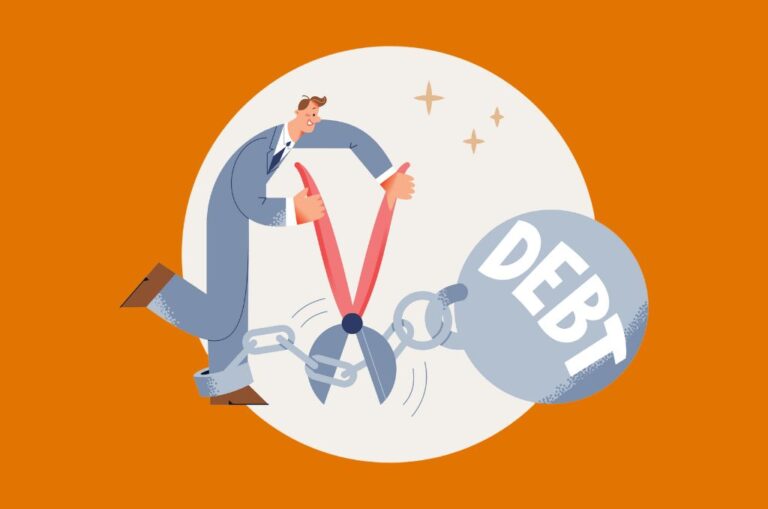Are you looking to buy a house with credit card debt? Still, thinking about how you can buy a house if you have credit card debt? Then find all the quick fixes here in the easiest way possible. There are many reasons today’s young adults are waiting before buying their first home. They may not have the down payment money, may not have the income they want to pay for the size of the house they are looking for, or may not be certain of their job status or work location.
But, nearly every person who buys a house these days has some debt prior to getting approved for a mortgage. Whether it is car loans, education loans, or credit card debt, homebuyers almost always enter the mortgage application process with some loan already on their books.
That does not preclude a person from getting a mortgage and buying a home. Otherwise, there would be purchasing of no homes. What it does is alter the amount of the mortgage loan you can acquire and the interest rate you are going to pay on that loan.
Let’s look at the ways credit card debt impacts your home buying experience and what you can do to make the credit card debt less impactful.
The Mortgage Application Process
When you apply for a mortgage, lenders look over all of the information they can get to determine whether you qualify for a loan. They will look at your bank statements and your tax filings and will get a report on all of the money you owe others – your outstanding loans, credit card balances, and any liens you may have.
They will also be able to tell if you have missed any payments on your outstanding loans or debts. That is one of the essential factors in determining what kind of loan risk you present. Simply put, don’t miss payments, even if you can only pay the minimum on your credit cards. Just as important will be the information you provide in terms of your income, which will determine how you will be able to pay off your mortgage amount each month and the monthly payments you have on your other loans. Once a lender determines that your income can cover your payments, a mortgage amount is offered, and an interest rate is determined.
What Lenders Look for in Your Credit History?
Your overall credit score indicates how likely you are to pay off your loans on time. The score can range from 300 to 850, and the higher the number, the better.
The factors which determine your credit score are all factors that you can affect, creating a higher and more appealing score. If you make your credit card minimum payments on time, the amount of credit card debt then becomes a determining factor. Lenders look to see how much of the credit made available to you that you are actually using. Your credit utilization ratio is the amount of credit available to you versus how much you have used. If a credit card offers you $10,000 in credit and your balance is $1,000, your credit utilization ratio is 10 percent. Lenders generally consider a credit utilization ratio above 30 percent as a red flag, so the further you are under that ratio, the more attractive you are to a lender.
Improving Your Debt-to-Income Ratio
Lenders will compare your income to your debt total to determine how much of a mortgage they will lend you. The income number they use is your gross monthly income prior to taxes and other deductions. The reason for that is that you can reduce your taxes and your automatic income deductions if necessary to become more attractive as a borrower.
Obviously, lenders want to see that your income is higher than your monthly debt amount, which is determined by the minimum payments you must make on all of your debts. They determine a debt-to-income ratio. Therefore, any effort you make to increase your gross monthly income and reduce your monthly debt minimum payments will help you acquire a mortgage.
Improving Your Credit Score
When you put your mind to it, you can have a measurable effect on your credit score.
(1) Reduce the number of credit card balances you have – For most lenders, it is easy to acquire a consolidation loan in order to roll all of your balances into one. Often, these loans are offered at a very low-interest rate for the first year or two, allowing you to pay off more than just the minimum balance due. Having only one payment to make rather than others, with a lower total amount to pay each month, can only help your mortgage application. There are a number of companies – Credit Sesame and Credit Karma among them – you can help you.
(2) Pay more than your minimum amount due – If all you are doing is paying the minimum amount due, you are just paying for the interest on your credit card balance and not impacting the balance itself. Determine an amount that you can pay over your minimum amount due each month, and that will become a habit that will serve you well.
(3) Examine your credit report – You can get a free copy of your credit report from any of the three agencies that report your score: Equifax, Experian, or TransUnion. You can also get your score from freecreditreport.com. Each of these agencies offers a procedure to correct any errors in your credit score, and mistakes often occur due to reporting misinformation. Taking time to fill out a form to start a correction will again benefit you when a lender looks at your credit report.
Your Good-Faith Effort Will Be Rewarded
The steps mentioned above may take a few months to put into motion, but it is best to get your credit card debt and income numbers in as attractive a range as possible before you shop for a home and a mortgage. Nothing is more deflating than finding a home that you think fits your needs and budget, only to discover that your credit history keeps you from getting a mortgage.
But lenders will be able to see how you have limited your credit card debt and how you have increased your income when they pull your credit history and see your financials. Every step you take to reduce your credit card debt and increase your gross monthly income will get you closer to your goal of acquiring a mortgage.








